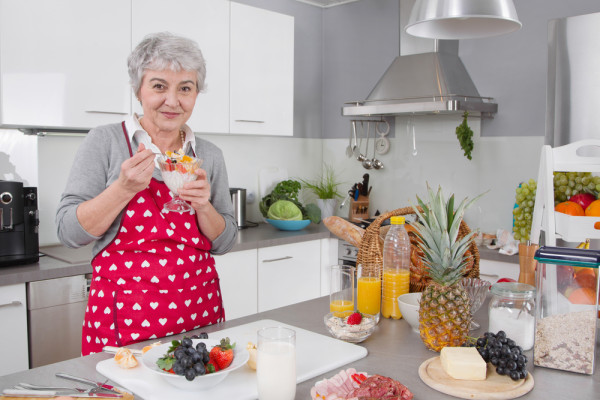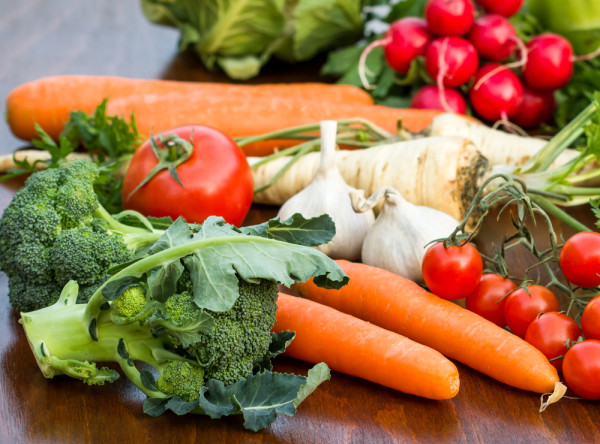Healthy Eating Tips for the Elderly
It’s important to eat well at every stage of your life, but it can be especially important to do so during your elderly years due to particular health issues and requirements. With that in mind, here are some tips for having a healthy diet if you or a loved one is in their elderly years…
Fruit & Veg
It’s no secret that we should all be eating plenty of fruit and vegetables, and it’s no different for elderly people. Getting your five a day is still important, but try and mix it up a bit. Try and eat a range of fruit and vegetables to ensure you get lots of different vitamins and minerals. Brightly coloured produce is usually a good source of essential vitamins.
Calcium
Keeping your bones healthy as you get older is vital as you’re more prone to breaks and also conditions such as osteoporosis. A recommended amount for older adults is 1,200mg of calcium a day, which can be from dairy sources such as cheese and milk, but also non-dairy sources like broccoli, almonds and kale.
Hydration
Again, this is vital for all ages but older people are more prone to dehydration and it’s therefore essential they get enough to drink. Not having enough can lead to constipation, urinary tract infections and even confusion.
Eat less salt
Salt can cause issues for everyone if we have too much of it, but the problems of water retention and blood pressure can be exacerbated in elderly people. If you’re used to seasoning your food with salt, try using garlic, herbs and spices instead.
Increase fibre intake
Fibre is one of the most important things in an elderly person’s diet and is one that can easily be forgotten about. Fibre can help you avoid constipation, reduce the risk of heart disease, diabetes and stroke, and help maintain a healthy weight. Good sources of fibre include fruit & veg, whole-grains, nuts and beans.
Not all fat is bad
Whilst having a fat-rich diet isn’t the best idea, not all fats are bad for you. Monounsaturated fats can be exceptionally good for you as they help to fight heart disease by regulating your cholesterol levels. Obviously you’ll still have to monitor what other fats you’re putting into your body, but you can get the monounsaturated fats from olive oil, salmon, walnuts and various other sources.
Be careful of vitamin A
Whilst it’s important to get the right amount of vitamins, having too much vitamin A can increase the chances of broken bones. Therefore, don’t take supplements containing vitamin A and steer clear of vitamin A rich foods such as liver.
The main thing to remember, as with most age groups, is to eat well and try and exercise daily, and then you’ll really be able to enjoy retirement living. If you’re moving into a care or retirement home, such as those offered by Extra Care then diet and exercise is something they’ll heavily promote anyway.
These are just a few pointers to consider, and there are obviously much more in-depth articles about the subject elsewhere. The NHS, for example, has some really good advice here.
Guest Post


